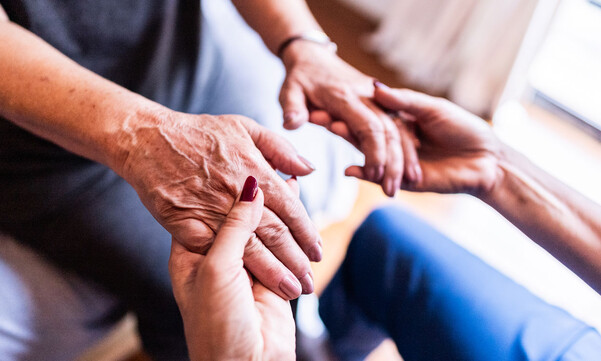When the brain experiences a traumatic blow, a mild traumatic brain injury -- more often referred to as a concussion -- can result. Headaches, dizziness, fatigue are physical symptoms that can have a significant impact on your daily life, but they aren’t the only signs that something is amiss.
A concussion can impact work and school life as well as your daily routine. It can affect your memory, your ability to problem solve, organize and reason. A concussion can make you feel like your thinking is cloudy and make you unable to do the simple, everyday tasks that used to be easy. You may have mood swings or trouble controlling your emotions.
All of these troubling symptoms can occur on the inside while on the outside you appear physically fine. Sometimes, the absence of physical injuries can make your recovery difficult. It’s hard to recuperate when friends, family and co-workers don’t fully grasp the deficits you are experiencing.Duke speech-language pathologist Brecken Hentz often works with people who are discouraged or frustrated when others don’t take the deficits that result from their concussion seriously. “Family may underestimate the impact it has on a person’s life,” Dr. Hentz says.
7 Tips for Recovery
Recovering from a concussion takes time and patience. Dr. Hentz says these tips may also help:
1. Don’t overstimulate. Create a calm, quiet environment. De-clutter living and work spaces. Turn off the television while having a conversation.
2. Use external aids. Create to do lists, calendars, and notes in one central place. Work with a speech-language pathologist to identify the technology that can help you achieve your personal goals.
3. Get organized. Keep items like keys, purses, wallets and medication in the same location so you can find them easily.
4. Rest your brain when it hurts. The brain needs time to heal, and headaches can result from overstimulation. Each person’s need for balance between rest and stimulation is different. Dr. Hentz says a speech-language pathologist and neurologist can help you find the balance you need during your rehabilitation.
5. Know when to resume activities. Work with your medical team to plan your return to work, school and sports. Most people benefit from a gradual return to activities.
6. Figure out what sets off your physical symptoms. For some people it’s noise, for others it’s lights or too much reading. Keep a log so you can learn to recognize what triggers your symptoms and take steps to minimize your exposure.
7. Seek help if you don't get better. Dr. Hentz says it’s common for people to think they should be doing better faster or to be embarrassed when their symptoms persist. “Speech-language pathologists can help you recover to your fullest potential after a concussion,” she says.





